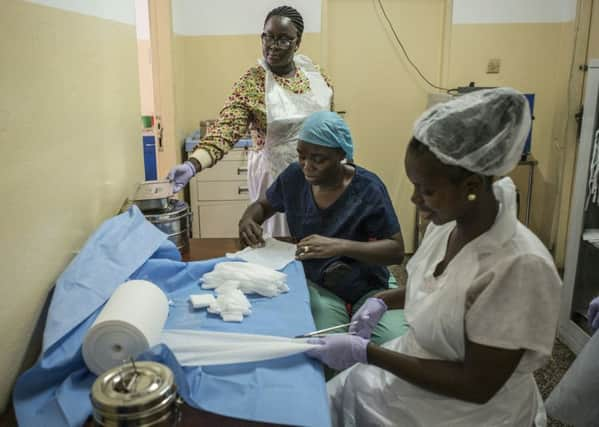Rebecca Horn: Support for those struggling with Ebola's aftermath is essential


Sierra Leone suffered from the highest number of cases, and there has been considerable investment in the Sierra Leone health care system. As a result, all health care centres now have clear systems for infection prevention and control; they all have a cooling system for drugs, which is not a straightforward matter in a country with very limited electricity supply and an alert system is still in place in case of deaths which cause concern.
All visitors to Sierra Leone will notice a very obvious change. Soap and water are available outside hospitals, small clinics, hotels and many other public spaces, and people are expected to use them.
Advertisement
Hide AdAdvertisement
Hide AdIn January 2015, when Ebola had already done its worst, I was involved in providing training and guidance for teachers on how to offer mental health support to school pupils. All the schools in the country had been closed since August 2014, and the teachers needed to be prepared for when the children returned. EducAid, the education network in Sierra Leone, wanted the teachers to be able to provide the psychosocial support these children needed, and to ensure that any survivors of Ebola were not stigmatised within the school.
I returned in spring 2017 after the Ebola outbreak was over to work on a project in collaboration with Queen Margaret University and War Trauma Foundation in the Netherlands to equip health care workers with the skills needed to provide psychological support to the patients and relatives they encounter every day.
Although health care workers have received training to improve the medical care they offer, gaps remain in their abilities to assess the psychosocial and mental health needs of the people they treat, who are often in considerable distress, and to provide the necessary support.
We hope that the training we are offering and evaluating will assist health care workers as they provide practical and emotional support to patients and relatives who are struggling with the aftermath of Ebola and life in a country with no safety-net. Our study will also provide much-needed evidence on the most effective ways to train people to offer psychosocial support, which will contribute to more effective responses to emergencies not only in Sierra Leone but worldwide.
Dr Rebecca Horn, Research Fellow, Institute of Global Health and Development, Queen Margaret University